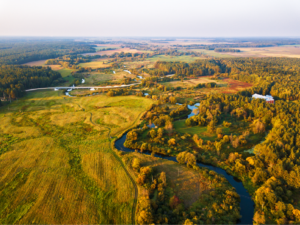Bioenergy Europe launches new statistical report

During the event Jérémie Geelen, Bioenergy Europe's market intelligence director, presented a statistical report - 'Bioenergy Landscape' - which sheds light on bioenergy’s significance in the European Union's decarbonisation journey.
Currently, imported fossil fuels remain the main source of energy in the EU. At COP28 world leaders agreed on the need to break free from fossil fuel dependency and to triple the production of renewable energy by 2030. Bioenergy is a versatile form of renewable energy, which can be used for heating, transport and electricity and is Europe's leading source of renewable energy, according to the association.
During the event, three speakers presented three different perspectives on bioenergy potential to push forward the energy transition.
“Heating represents most of our energy demand. To reach climate neutrality by 2050, it is key to decarbonise the sector," said Geelen. "Bioenergy takes the lead, contributing a substantial 83.6% to the EU’s renewable heating mix. Its standout features— versatility, indigenous supply, and independence from weather conditions — position bioenergy as a leading solution in the renewable heating landscape."
“The energy transition confronts us with the imbalance of our actions on the ecosystems on which we rely," said Martin Colla, PhD Candidate in Sustainable Energy, UCLouvain & VUB. "The use of biomass for energy has highlighted the relationship between humans and nature and the renewal cycle of natural resources, raising awareness on sustainable practices and environmental protection of ecosystems.”
“Bioenergy is not only the most versatile renewable energy solution but also a viable option for hard-to-abate sectors like heavy industry and transportation," stated Esther Bustillo Vazquez, project engineer, ENGIE Laborelec. In essence, bioenergy is not just part of the solution; it is a key player in creating a cleaner, greener future for us all.”
During the event, the speakers agreed that bioenergy and electrification are complementary and not competing, bioenergy is a crucial source of energy for households, especially those with lower incomes, and it has unique characteristics that Europe needs to achieve neutrality.
To assist the EU in its decarbonisation efforts Bioenergy Europe has outlined three steps towards the energy transition on its Manifesto for the 2024 European Elections.


























